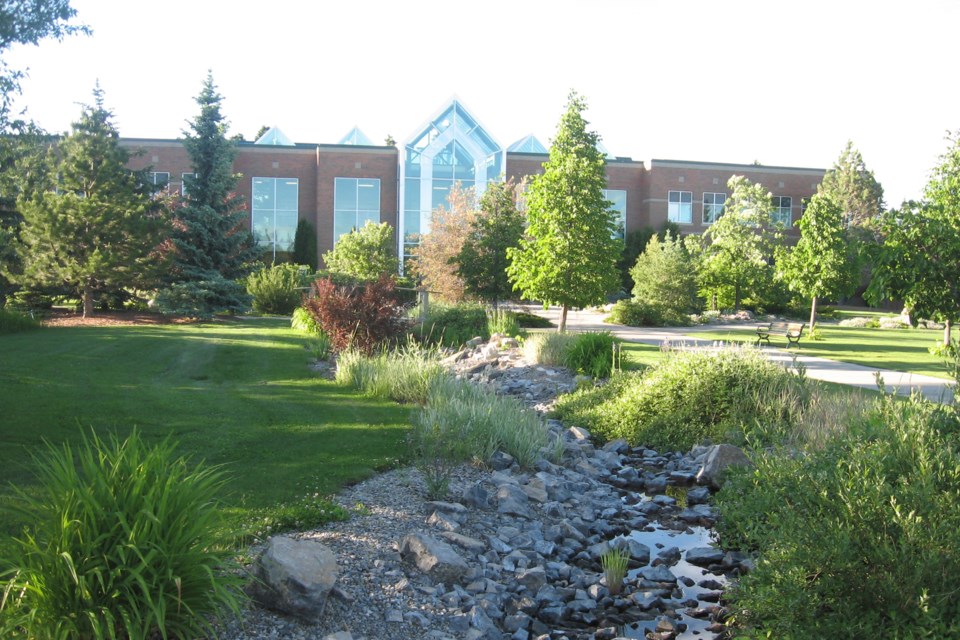OLDS — The heat this summer has forced changes in the way Olds College looks after turf and plants on campus – including the botanical gardens, also known as the wetlands.
And more changes may occur if we can expect heat like this in future years, says Daniel Chappell, manager of botanic gardens and greenhouses for Olds College.
Chappell said evaporation caused by extreme heat plus a lack of rain this year means the dugouts the college relies on to obtain water for irrigation are not being replenished as they normally would. As a result, mulch is being spread to conserve moisture.
“A big part of our challenge this year is getting enough water on our plants and not running our dugouts dry,” he said. “We are putting a lot of mulch on the ground for the perennials so the soil can hold moisture for longer without having to be irrigated.
“I’m decreasing some of the irrigation on especially turf – like kind of non-critical turf areas. So yeah, I’m going to have some yellower grass than usual, but that’s just kind of a management decision we have to make sometimes."
If the hot, dry summers continue, bigger changes may be made.
“If it looks like this is going to be a few years of this, I might start looking at some different grass species in some areas too that can tolerate the dry a bit more,” he said.
The heat has been tough on plants in the college’s greenhouses too.
The relentless heat beating down on the greenhouses acts like a kind of magnifying glass, intensifying the heat and driving up the temperature, thereby stressing plants in those facilities.
The college’s greenhouses were designed to accommodate plants in the winter, because greenhouse classes were held during winter semesters, he said. As a result, they don’t have major ventilation. They’re designed to keep the heat in, not out.
"If it’s 35 outside, sometimes our greenhouses, because they were designed for winter education, they weren’t designed for summer ventilation as well, because that’s hard to balance,” he said. "So ours heat up significantly. I’ve seen our thermometers say 50 degrees and so we try not to have plants in those houses at that time of year.
"Commercial greenhouses, they tend to be well ventilated. So it does act like a magnifying glass, but they can move air through the greenhouse so fast that they just exchange it with outdoor air."
As a result, Chappell said there’s a good chance Olds College greenhouses will be modified to provide more ventilation.
“We are looking at that,” he said. “We're due for an upgrade anyway. But I don’t know enough about design, so we’re probably going to hire an engineer in a year or two.”



